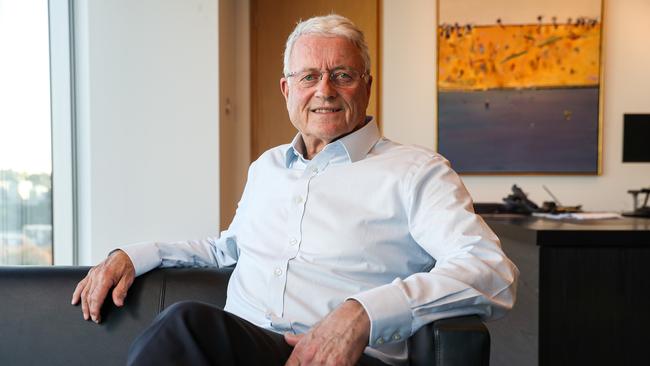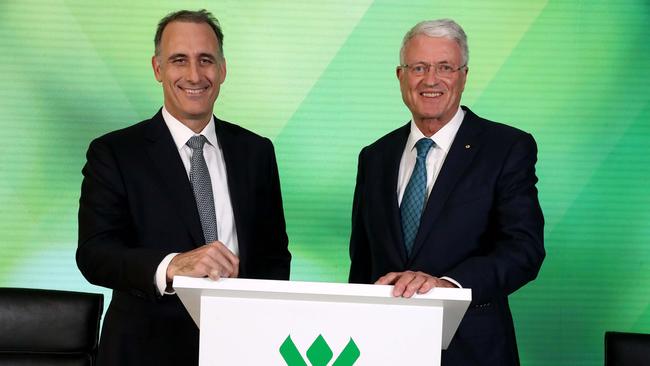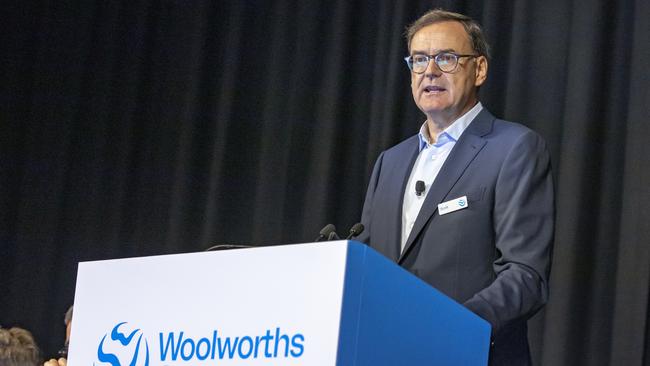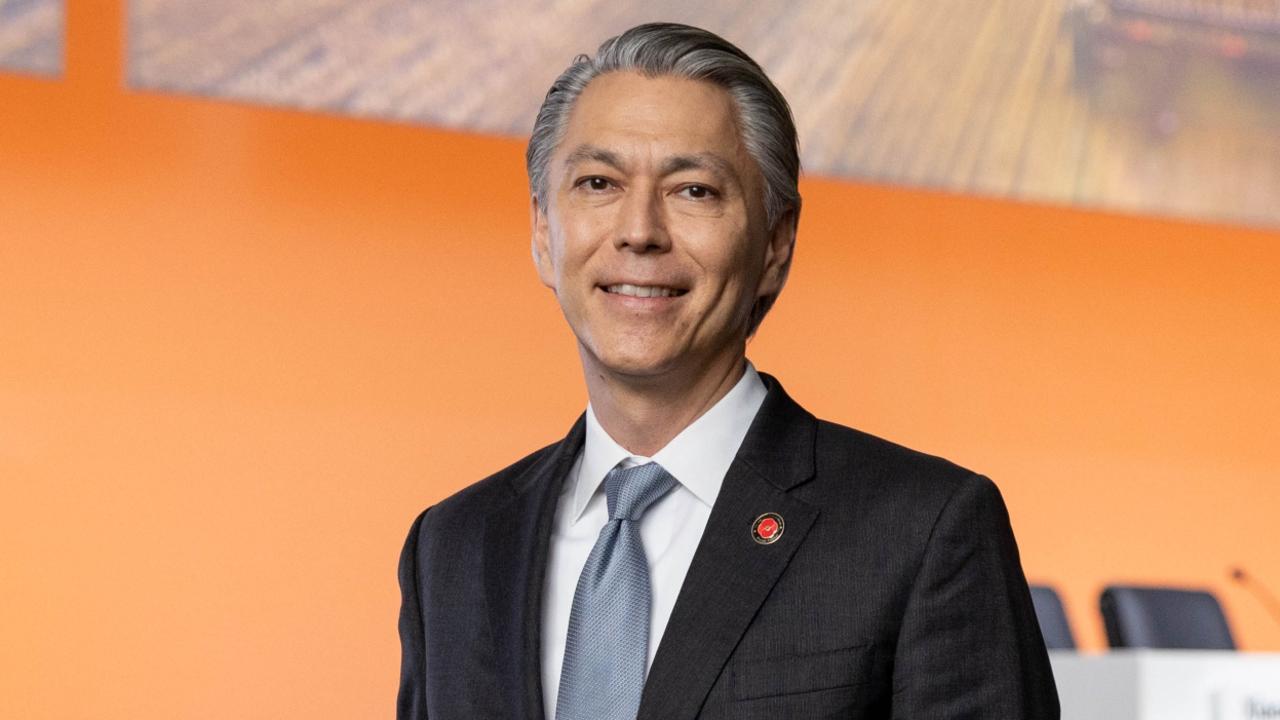Bunnings owner Wesfarmers hits out at anti-profit rhetoric; Woolworths rails at retail inquiries
The nation’s two largest retailers have pushed back against official probes, with Wesfarmers chair Michael Chaney hitting out at the anti-profit rhetoric levelled against some of Australia’s biggest companies.

Business
Don't miss out on the headlines from Business. Followed categories will be added to My News.
The nation’s two largest retailers have pushed back against official probes with the Wesfarmers chairman complaining that “profit seems to be a dirty word” while Woolworths denounced escalating regulation.
Wesfarmers, the owner of Bunnings and Kmart, hit out at the anti-profit rhetoric levelled against some of Australia’s biggest companies.
“Now for some external parties, profit seems to be a dirty word, but it is important to understand how profitable businesses are essential to our economy and future prosperity,” Wesfarmers chairman Michael Chaney told shareholders at its annual general meeting.
“For one thing, companies have to be profitable in order to continue to operate – to do everything I just listed, like employing people, sourcing products and services from suppliers, providing customers what they need and supporting their communities.”
Woolworths is facing a string of public inquiries into the supermarkets from governments and regulators as well as a Federal Court case launched by the Australian Competition & Consumer Commission over alleged ‘‘fake discounts’’.
Chairman Scott Perkins conceded Woolworths wasn’t perfect but said many shareholders were “frustrated” about the “relative merits” of some of these inquiries.
“I am sure we will learn things from some of these inquiries,” he said.
He also rejected the ACCC allegation that Woolworths’s discounting campaigns were misleading.
“Specifically, we were disappointed with the ACCC’s announcement to commence proceedings, and while we disagree with their assessment that the ‘Prices Dropped’ program was misleading, we are committed to working constructively with them,” he said. Mr Chaney asked investors “where do our profits go?” to highlight the limits on Wesfarmers’ ability to reinvest and while contributing to the Australian economy.
“The first billion dollars of Wesfarmers’ profit before tax in 2024, or 29 per cent, went to the federal government as income tax, to support all the services government provides. The next 61 per cent, or $2.2bn, went to our 490,000 shareholders – including individuals and superannuation funds … the last 10 per cent of the profit (about 1 per cent of the original revenue) went to retained earnings.
“So, in other words, almost all of the profit ended up outside the company, supporting the economy and community in different ways.”

Mr Chaney then lamented it “would be good to hear political leaders of all persuasions acknowledge their understanding of these facts” that large corporates such as Wesfarmers were making enormous contributions to the community, which could then counteract the constant call for even more regulation to saddle business with greater costs.
“Such an understanding would, I believe, lessen the chance of governments enacting laws that, as we pointed out in the annual report, work against the national productivity improvements that Australia so urgently needs,” Mr Chaney said.
“I’m referring here to the many changes we’ve seen to employment laws, payroll taxes, and to some proposed environmental laws. It is only through a prosperous, vibrant, growing private sector that Australia is going to be able to provide the sort of support to our children and grandchildren that we have, in the past, taken for granted.”
Mr Perkins addressed the mounting inquiries now facing the supermarket sector, as well as the ACCC court case.
“The dramatically changed political and economic conditions led to increased regulatory oversight of Australian supermarkets,” he said. “Woolworths Group participated in a number of government inquiries during the year, including the ongoing ACCC Supermarkets Inquiry and the Food and Grocery Code of Conduct Review.”

The nation’s $120bn supermarket sector is currently under the gun from regulators and politicians, facing inquiries from state governments, the Senate and the ACCC. The latter will include another round of public testimony where supermarket executives will be dragged before the cameras and cross-examined.
For many Woolworths shareholders these inquiries were frustrating, Mr Perkins noted, with many questioning their merits.
“Our approach is to calmly and methodically address these issues, present the evidence and pursue all options that give the best possible opportunity for reasoned outcomes to prevail.
“But we remain firmly supportive of our teams and their conduct and the customer-first culture that so strongly underpins the Woolworths Group of today,” he said.
Mr Perkins added that the scepticism and criticism of its price discounting strategies, culminating in the ACCC court case against it and arch rival Coles, had hampered the retailers.
“I want to stress that we take our responsibility on pricing very seriously in line with our Australian Consumer law compliance efforts.
“We track our price competitiveness closely and we know that our customers do so as well and have more choice than ever,” he said.
“If we don’t offer great value alongside quality, range and convenience, customers will choose to shop elsewhere.”
Wesfarmers chief executive Rob Scott said elevated inflation and interest rates continued to put pressure on household and business demand, but the conglomerate’s key businesses, such as Bunnings and Kmart, remained resilient as shoppers sought value.
Mr Scott said for Bunnings, which drives the bulk of Wesfarmers’s earnings, year-to-date sales growth remained resilient with positive sales growth in both consumer and commercial segments, but the weakness in residential construction was weighing on commercial sales.
“Growth in the consumer segment has been pleasing, and Bunnings has seen a continued increase in transactions driven by ongoing demand for repairs and maintenance,” he said.
“Bulk pack quantities, own-brand and entry level ranges continue to perform well.”
He said Kmart Group, which included Target, was benefiting from the strong value credentials and uniqueness of its Anko private label products.
Originally published as Bunnings owner Wesfarmers hits out at anti-profit rhetoric; Woolworths rails at retail inquiries





